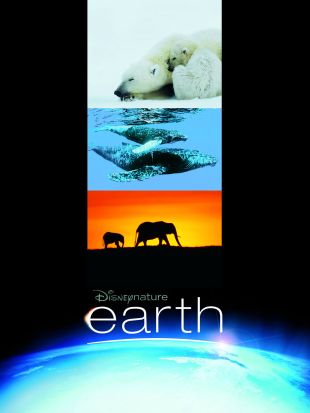
The producers of Planet Earth bring the award-winning nature series to the big screen with Earth, a visually spectacular, occasionally heart-wrenching nature documentary tracing the migrations of three animal families over the course of one year. And though the perilous journeys taken by these persevering creatures forms the crux of Earth's storyline, the film's secondary message may be its most crucial: in order to ensure that the delicate balance of nature remains, humankind must take serious measures to reduce our ecological footprint before the damage done to our environment becomes irreversible. It should come as no surprise that Earth arrives in theaters courtesy of Disney, the same studio that brought us Nature's Half Acre approximately 50 years prior, because both films employ innovative filming techniques to explore our natural surroundings even if the stories here are told on a much grander scale, and the end product will appeal just as much to wide-eyed youngsters as it will to environmentally conscious adults. The story gets under way in winter, as a mother polar bear and her two cubs emerge from hibernation in search of sustenance. Their father is away on the hunt, but should he fail to find food the entire family may starve. Meanwhile, a herd of elephants makes its way across the dusty African plane while fending off the advances of hungry lions, and a mother humpback whale and her cub travel halfway across the planet to feed on krill in Antarctica. We follow each of these animal families over 12 arduous months, during which they face moments of harrowing peril while strengthening their bonds and, in some cases, following the same migratory paths that their ancestors have walked for hundreds -- if not thousands -- of years. As the seasons turn, we intermittently break from these main storylines to explore various unique natural environments and get familiarized with some unique species of animals with which humans rarely interact. First and foremost, Earth is geared toward families, a selling point that ensures the occasional tense moments of predator versus prey never get graphic: a breathtaking chase in which a wolf pursues a baby caribou ends with the wolf simply standing dominant over its exhausted prize, and a cheetah seems to lovingly embrace its prey during a slow-motion scene that is more mesmerizing than horrifying. Narrator James Earl Jones does well to steer the viewer's emotions toward wonder and amazement by offering commentary that is slyly humorous and fascinatingly informative, while Martin Elsbury and Vartan Nazarian's expert editing keeps the mood relatively light by gently guiding us from one amazing scene to the next. But the true heroes of this remarkable production have to be cinematographers Richard Brooks Burton, Mike Holding, and Andrew Shillabeer, who put their own instincts for self-preservation aside to capture images of near-impossible beauty. And their heroic efforts are backed up by George Fenton's sweeping score, an appropriately grandiose work that occasionally gives Earth the feel of a big Hollywood production. While more sensitive children may get spooked by some of Earth's more intense imagery (a shot of a great white shark bursting through the water like a demon through hellfire could prove nightmare-inducing), the overall tone of the film is absolutely appropriate for all ages, and it's never too early to learn the importance of preserving our planet.
